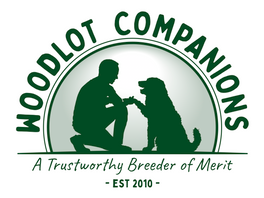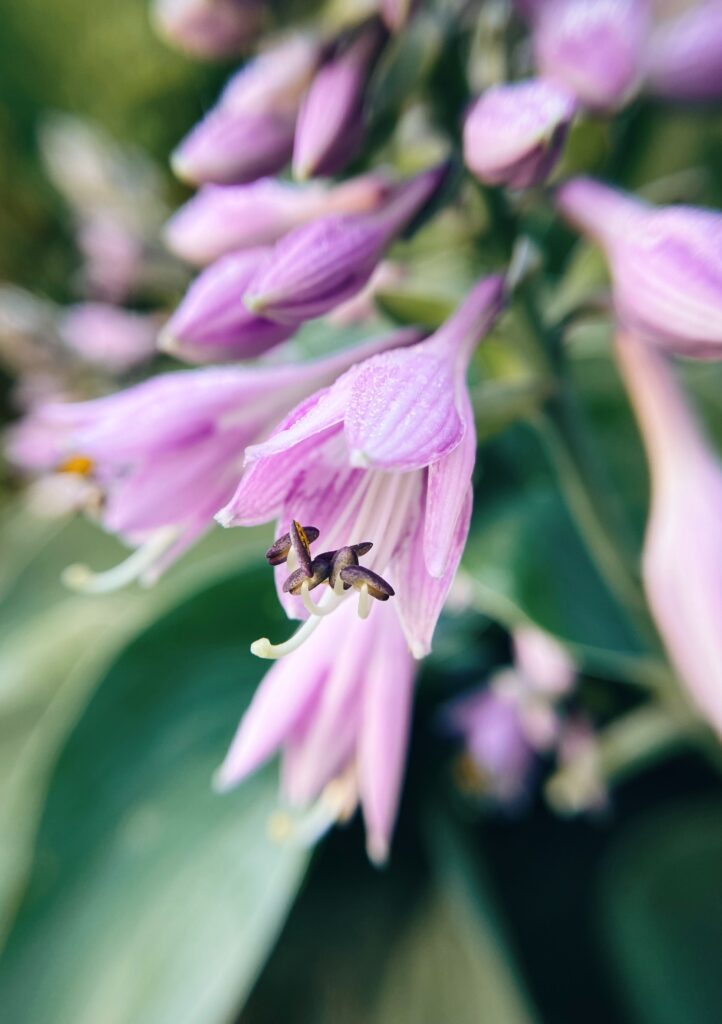Spring is finally making it’s way here and that means growth, greenery, and gardening! Unfortunately, there can be a lot of these beautiful plants and flowers that are not the best for our sweet furry friends. Here you will find a list of the most common plants found in your yard or home that can cause your puppy problems. While some plants just give your pup tummy troubles, others can cause serious health issues that could lead to death. So, it’s important to make yourself familiar and know what to do in case a plant has been ingested.
Aconitum aka Wolfsbane or Monkshood
These plants are from the buttercup family and are often used in landscaping. Every part of this plant contains deadly toxins that could be fatal. In fact, it was historically used to kill both wolves and dogs that had gone mad.
Emerald Fern aka Asparagus Fern or Lace Fern
Ferns are popular as an indoor plant and in landscaping – if ingested your pup could suffer from diarrhea and vomiting! Emerald Ferns are so detrimental that even if your dog is playing or rubbing up against this plant regularly it will cause severe skin irritation.
Sago Palm
This mini palm tree lookalike is often used to decorate around pools indoor and outdoor, but it’s toxicity to your pup may not make it the best choice with the seeds containing the largest amount of poison that causes liver failure and potential death.
Tulips
These popular colorful flowers that signify spring is here are a favorite in our gardens and in our homes. If your dog chews on the leaves his tummy will become upset, but worse still is if he digs up and eats the newly-planted bulbs. The bulbs won’t just upset the stomach, but will cause depression and a loss of appetite.
Lily of the Valley
While being a sweet-smelling addition to your garden with their adorable white bell shaped flowers that thrive in the shade – this little beauty is sadly an extreme toxin to your furry friend. Even a small bit of exposure can cause heart problems for dogs by changing the heart rate and rhythm, which in turn causes low blood pressure and seizures.
Philodendrons
This preferred houseplant with heart-shaped leaves has only grown in popularity due to its ease to grow and ability to propagate effortlessly. Be aware though that these plants contain calcium oxalate crystals, which can irritate your pup’s mouth and lips. Over exposure can lead to excessive drooling and retching.
Rhododendron aka Azaleas
These flowering shrubs are often found in front and backyards across the country and unfortunately all parts of these gardening favorites are toxic! Depending on how much your dog eats will determine how severe their symptoms – luckily it’s not a tempting plant for most pups. While it’s rare for a canine to nibble on, if they do their stomach will become upset and tremors can set in. Larger doses will cause irregularities in the heartbeat and blood pressure.
Hostas
These hardy, shade tolerant foliage plants are a favored pick for outdoor landscaping due to their handsome large low growing leaves and long-stemmed flowers. However, all parts of this plant are poisonous to your sweet pup. If they should choose to use this plant as a chew toy, expect to see signs of depression with vomiting and diarrhea.
Hydrangeas
This flowering plant with its big, beautiful pom-pom blooms is a sought after choice to grow out in the yard, but the flowers are a beautiful addition to bouquet arrangements too. Because of their large size you will find these often used as hedges, which means even if you don’t have any, you’re likely to encounter them on walks around the neighborhood with your pup. If ingested, your dog will exhibit depression, high heart rates, and vomiting.
Oleander
This tree is beautiful with its pink flowers in various shades, but it is best to avoid. Every part of this plant poses a threat to both dogs and humans. Even taking a drink of water with an oleander leaf floating in it can potentially poison your precious pup. With mild symptoms being vomiting and diarrhea and the most severe causing neurological complications and arrhythmias leading to death. If you suspect ingestion it is best to get your pet to your veterinarian as soon as possible!
How toxic are my houseplants to my dog?
Puppies and dogs alike are curious creatures that are notorious for getting their noses and mouths into things they shouldn’t. The ASPCA Animal Poison Control Center reported in 2021, almost 10 percent of all calls were related to pets ingesting plants that were toxic to them, making it fifth on their list of the top 10 pet toxins. Ideally you would want to remove any plants that are toxic from your environment, however that is not always possible since you can’t very well ask your neighbor to uproot their prized hydrangeas! The best prevention is to educate yourself on the plants you do have or ones that you’re looking into buying- that way you can decide if the risk is worth it for each and every plant! You may find yourself doing a bit of extra gardening this spring uprooting those hostas in the backyard or choose to simply put up a barrier to prevent your dog from getting into trouble.
Get Help for a Poisoned Puppy
In the case of suspecting your forever family member has ingested a toxic plant, take a picture and call the ASPCA Animal Poison Control Hotline at 888-426-4435 available 24 hours a day, 365 days a year. This is a great resource to utilize! They can tell you how toxic the plant is and if you need to seek veterinary care. If you are headed to the vet, it’s a good idea to get clippings of the suspected plant and keep any parts that may have been vomited to be able to confirm if they match.
When adding greenery to your home or backyard this spring a great place to checkout first is this list by the ASPCA of poisonous and non-toxic plants. The toxic plant list is also a wonderful resource if you are unsure of the plants you already own or if you move into a new neighborhood, as it is extensive and covers more than the plants we listed above!
Happy spring and happy gardening!



